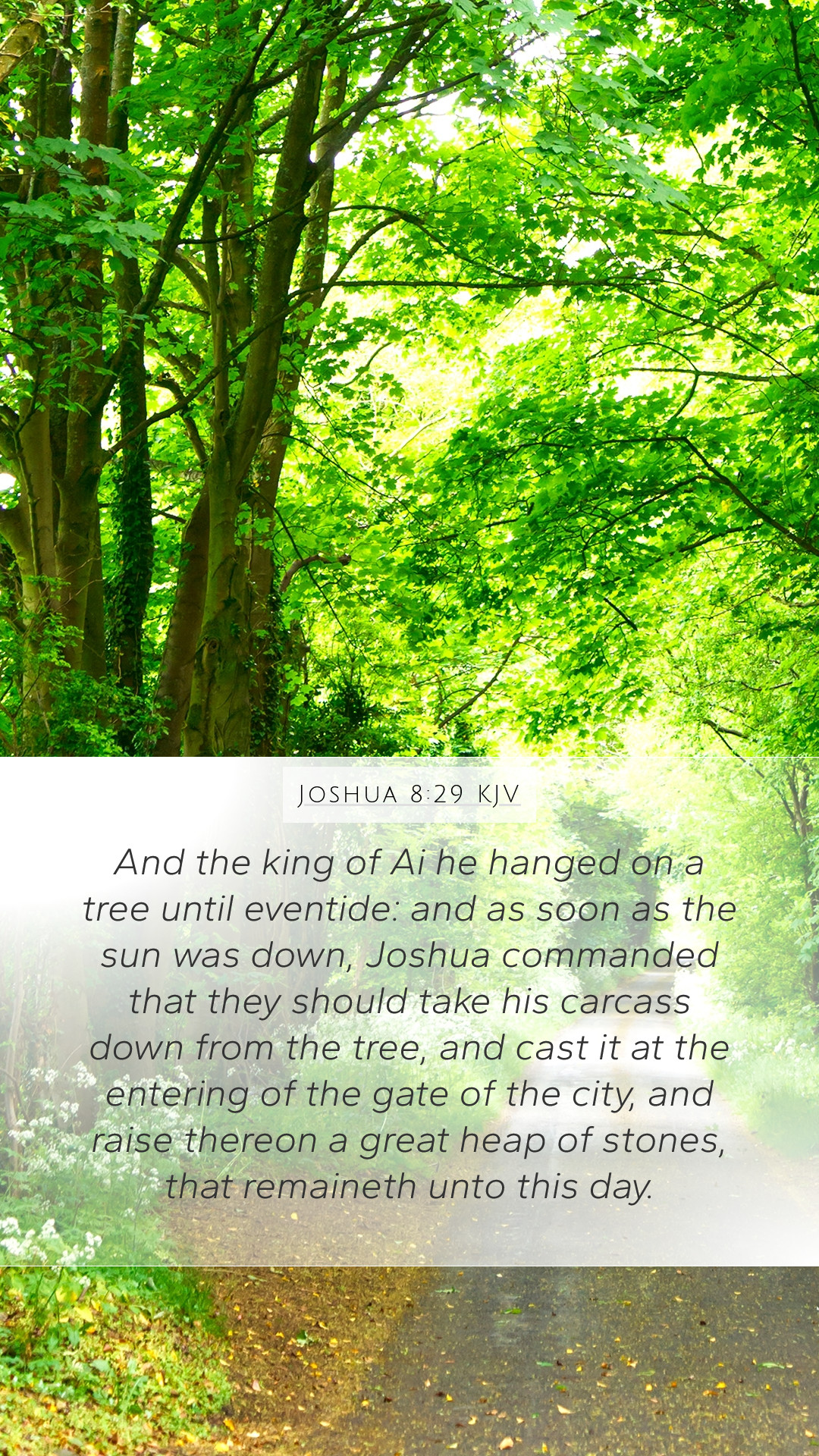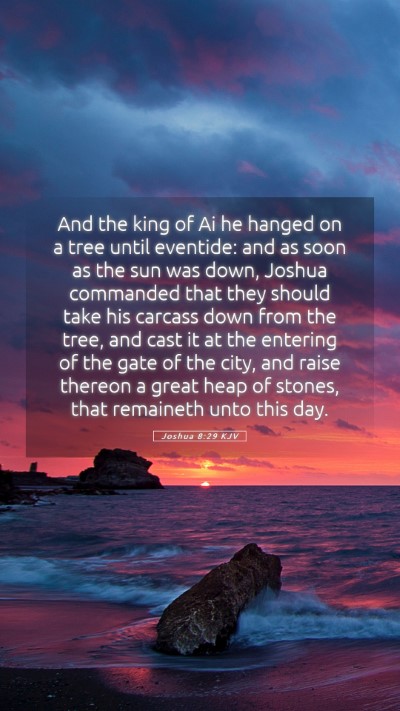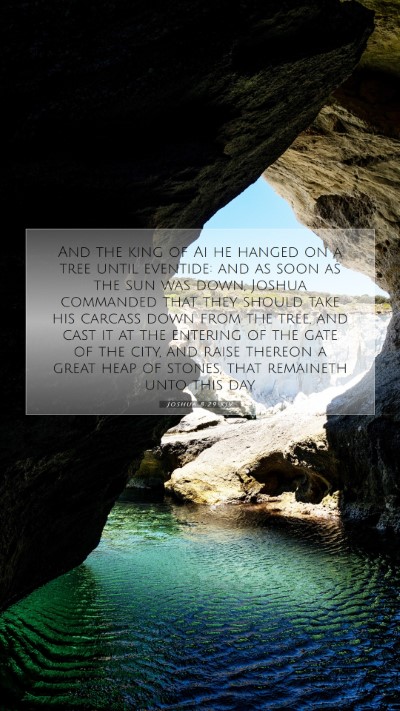Understanding Joshua 8:29: A Comprehensive Bible Verse Commentary
The verse Joshua 8:29 states, "And the king of Ai he hanged on a tree until evening; and as soon as the sun was down, Joshua commanded that they should take his carcass down from the tree, and cast it at the entering of the gate of the city, and raise there a great heap of stones, that remaineth unto this day."
Overview of the Verse
This verse captures a critical moment in the conquest of Canaan when Israel under Joshua's leadership defeated the city of Ai. The hanging of the king serves as a symbol of disgrace for his failure against the Israelites and a confirmation of God’s judgment against opposition.
Bible Verse Meanings
The actions taken by Joshua in this passage convey profound biblical meanings that can be understood through various angles:
- Justice and Retribution: The hanging of the king signifies God's judgment against the enemies of Israel. Historically, hanging was a form of execution that also served as a public warning.
- Symbol of Defeat: The act of hanging and then burying the body plays a significant role in illustrating the absolute defeat of the city of Ai and its king.
- Long-lasting Remembrance: The great heap of stones is a memorial, reminding future generations of God's act of deliverance and the consequences of rebellion against Him.
Bible Verse Interpretations
For deeper insights, let us explore the interpretations provided by renowned commentators like Matthew Henry, Albert Barnes, and Adam Clarke:
- Matthew Henry: He emphasizes that this event reiterates God's providence in guiding Israel to victory. The public display of the king’s body serves as a deterrent against rebellion.
- Albert Barnes: Barnes notes the importance of obedience to God’s commands and the significance of memorials in the Israelite tradition, which serves to keep the memory of God's help alive.
- Adam Clarke: Clarke highlights the cultural context of hanging as a punishment and the theological implications of burying the body at the city gate, suggesting that it further signifies utter defeat and divine disfavor.
Bible Verse Understanding
Understanding this scripture involves looking at its historical, spiritual, and practical implications:
- Historical Context: This verse should be understood in light of its historical significance during the Israelite conquest of Canaan, signifying both military victory and divine justice.
- Spiritual Significance: The event illustrates God's control over nations and His overarching plan for Israel as the chosen people.
- Practical Applications: It teaches about the seriousness of sin and rebellion against God and encourages believers to reflect on the fate of those opposed to God’s will.
Bible Verse Explanations
Exploring the meanings behind Joshua 8:29 allows for diverse applications in contemporary faith practice:
- Reflection on Divine Justice: The act serves as a warning about the consequences of sin and the reality of God's judgment in scripture.
- Lessons on Leadership: Joshua's decisive actions demonstrate effective leadership in fulfilling God’s directives.
- Cultural Interpretations: Understanding the ancient practices surrounding justice and warfare helps modern readers appreciate the gravity of these events.
In-depth Bible Verse Analysis
Analyzing Joshua 8:29 involves examining its direct implications and the broader thematic elements found in Scripture:
- The Theme of Victory: The defeat of Ai is a significant victory in Israel’s journey, showing God’s faithfulness to His promises.
- God's Sovereignty: The overt control by God in these events serves to remind believers that no ungodly rulers can stand before His authority.
- Importance of Remembrance: The heap of stones speaks to creating memorials in our lives which serve to remind us of God’s faithfulness.
Cross References
Joshua 8:29 relates to several other passages in Scripture that may enrich understanding:
- Deuteronomy 21:22-23: Discusses the hanging of a body as a symbol of God's curse.
- Joshua 10:26-27: Talks about the kings being executed and hanged as a public display of judgment.
- 1 Samuel 31:9-10: The implications of hanging as a sign of disgrace in the deaths of defeated enemies.
Conclusion
Joshua 8:29 is rich in theological significance and historical context. It emphasizes the serious nature of divine justice, the importance of leadership in faithfulness to God, and the necessity of remembering the past to shape the future. For believers, this verse serves as a timeless reminder to uphold righteousness and acknowledge God’s ultimate authority over all nations and rulers.
Engaging with this verse through various Bible study tools, group discussions, or personal study can lead to deeper insights and applications in daily life.


